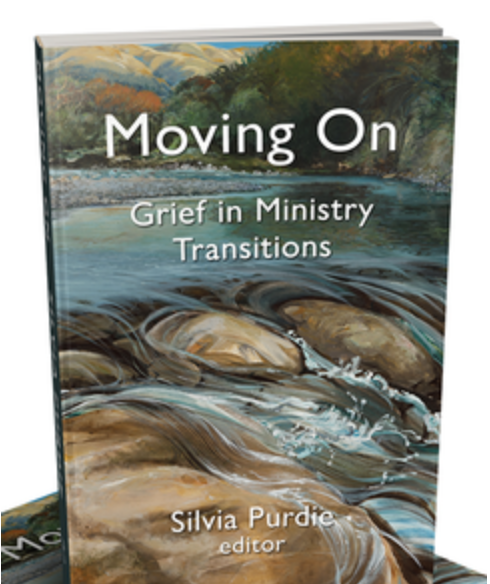Christ the Cornerstone: Ministry Transitions
Concluding chapter of Moving On: Grief in Ministry Transitions
by Silvia Purdie
2022, Philip Garside Publishing.
Therefore thus says the Lord God, “See, I am laying in Zion a foundation stone, a tested stone, a precious cornerstone, a sure foundation: ‘One who trusts will not panic.’” (Isaiah 28:16, NRSV)
“… the household of God, built upon the foundation of the apostles and prophets, with Christ Jesus himself as the cornerstone; in him the whole structure is joined together and grows into a holy temple in the Lord.” (Ephesians 2:19b-21, NRSV)
I entered Christian ministry as Christendom was breathing its last. Those who founded my denomination, the Presbyterian Church of Aotearoa New Zealand, believed they were building on the cornerstone of Jesus Christ an institution which would stand firm through every storm, a symbol of stability. I inherited a church built to last, which is now in fundamental transition. Jesus Christ is still our cornerstone, but how do we “trust and not panic” in the face of wave after wave of change – decline, aging, pandemic, climate disasters, generational change, new technologies and genders? Moving On: Grief in Ministry Transition began life as a very personal reflection on a ministry ending which left me shaken. It has grown become a multi-dimensional exploration of what it takes to minister in a church and world in constant uncomfortable transition.
At the heart of this book is a particular moment in time: when a ministry appointment comes to an end. The work grew and grew as others courageously shared their grief stories with me. The chapters of Moving On reveal the lived experience of ministry in the presence of loss and grief, not only personally but collectively as church. We have dived deep into emotion and theology, re-evaluating systems and cultural norms.
Ministry in the church creates deep bonds of affection and a strong sense of belonging in community. Those who minister the Gospel of Christ – in word and sacrament, pastoral care, mission or youth work – invest themselves in their work wholeheartedly. Good intentions of inclusion, love and mission are affirmed week by week by the community in worship. However, these good intentions can be violated by experiences of abuse. Trust can be betrayed, and disappointment can harden into rejection. When these lead to the ending of a ministry, grief is complicated. Where these cause spiritual hurt, spiritual healing is required. Even when a ministry has gone well, leaving still involves multiple loss, not just for the pastor but also for their spouse and family.
Transition is difficult, made all the more so because of high expectations of resilience. Marsha Frame’s study on relocating ministers quotes one participant who acknowledges the irony that although ministers are “supposed to deal caringly and effectively with the grief of others, we fail to apply what we know about grief to ourselves,” and concludes that “the most pressing need was for assistance with grief and loss.”[i] Moving On provides such assistance through applying theory and research on grief to the experience of pastors in difficult ministry transition. It advocates for taking time to attend to the complex tasks of grief, and provides a range of resources and insights about recovery. It addresses institutional, systemic and practical aspects of ministry endings. It suggests biblical and theological resources to connect us into the Gospel story; this is important because loss, especially traumatic loss, threatens to tear us out of God’s story.
Ministry is not just a job. To honour the wholeness of heart and soul, contributors and I have provided a wealth of prayer material. When we are at our lowest, we struggle to find words to pray. When words are not enough, we need actions to fully express ourselves to God. My prayer is that God may meet you there, and speak to you through the stories of others, through poetry and litany, and through your own heart.
Loss is part of life, the cost of love. Grieving is a space between what was and what will be, and it can be a strange no-man’s-land, a wilderness. The faith challenge is to place oneself fully in the knowledge that ‘I am where I am meant to be.’ The loss of a ministry role and a place as pastor in the people of God is a death, and grieving for this death can go unrecognised by others, but the Holy Spirits reminds us of the One who sees and hears, who comforts and heals and calls us on.
We do Jesus a dis-service when we cast him as the cornerstone of institutional stability. Institutional stability is crumbling (and not just in the church), bringing with it a host of challenging human experiences and transitions. Christ the Cornerstone is our constant presence and guide, a living stone, not set in concrete. Through all the changes of life, may Christ be your rock and your light.
Numbers 6:24-26:
The Lord bless you and keep you; the Lord make his face to shine upon you and be gracious to you; the Lord lift up his countenance upon you and give you peace. (NRSV)
God bless you and keep you, God smile on you and gift you, God look you full in the face and make you prosper. (The Message)
Mā Ihowa koe e manaaki, māna koe e tiaki: Mā Ihowa e mea kia tīaho tōna mata ki a koe, māna ano hoki koe e atawhai: Mā Ihowa tona kanohi e whakaara ki a koe, māna ano e tuku te rangimārie ki a koe. (Paipera Tapu)
[i] Marsha Wiggins Frame, “Relocation and Well-Being in United Methodist Clergy and Their Spouses: What Pastoral Counselors Need to Know.” Pastoral Psychology, vol. 46, issue 6 (Jul 1998): 415-430, 426.
by Silvia Purdie
2022, Philip Garside Publishing.
Therefore thus says the Lord God, “See, I am laying in Zion a foundation stone, a tested stone, a precious cornerstone, a sure foundation: ‘One who trusts will not panic.’” (Isaiah 28:16, NRSV)
“… the household of God, built upon the foundation of the apostles and prophets, with Christ Jesus himself as the cornerstone; in him the whole structure is joined together and grows into a holy temple in the Lord.” (Ephesians 2:19b-21, NRSV)
I entered Christian ministry as Christendom was breathing its last. Those who founded my denomination, the Presbyterian Church of Aotearoa New Zealand, believed they were building on the cornerstone of Jesus Christ an institution which would stand firm through every storm, a symbol of stability. I inherited a church built to last, which is now in fundamental transition. Jesus Christ is still our cornerstone, but how do we “trust and not panic” in the face of wave after wave of change – decline, aging, pandemic, climate disasters, generational change, new technologies and genders? Moving On: Grief in Ministry Transition began life as a very personal reflection on a ministry ending which left me shaken. It has grown become a multi-dimensional exploration of what it takes to minister in a church and world in constant uncomfortable transition.
At the heart of this book is a particular moment in time: when a ministry appointment comes to an end. The work grew and grew as others courageously shared their grief stories with me. The chapters of Moving On reveal the lived experience of ministry in the presence of loss and grief, not only personally but collectively as church. We have dived deep into emotion and theology, re-evaluating systems and cultural norms.
Ministry in the church creates deep bonds of affection and a strong sense of belonging in community. Those who minister the Gospel of Christ – in word and sacrament, pastoral care, mission or youth work – invest themselves in their work wholeheartedly. Good intentions of inclusion, love and mission are affirmed week by week by the community in worship. However, these good intentions can be violated by experiences of abuse. Trust can be betrayed, and disappointment can harden into rejection. When these lead to the ending of a ministry, grief is complicated. Where these cause spiritual hurt, spiritual healing is required. Even when a ministry has gone well, leaving still involves multiple loss, not just for the pastor but also for their spouse and family.
Transition is difficult, made all the more so because of high expectations of resilience. Marsha Frame’s study on relocating ministers quotes one participant who acknowledges the irony that although ministers are “supposed to deal caringly and effectively with the grief of others, we fail to apply what we know about grief to ourselves,” and concludes that “the most pressing need was for assistance with grief and loss.”[i] Moving On provides such assistance through applying theory and research on grief to the experience of pastors in difficult ministry transition. It advocates for taking time to attend to the complex tasks of grief, and provides a range of resources and insights about recovery. It addresses institutional, systemic and practical aspects of ministry endings. It suggests biblical and theological resources to connect us into the Gospel story; this is important because loss, especially traumatic loss, threatens to tear us out of God’s story.
Ministry is not just a job. To honour the wholeness of heart and soul, contributors and I have provided a wealth of prayer material. When we are at our lowest, we struggle to find words to pray. When words are not enough, we need actions to fully express ourselves to God. My prayer is that God may meet you there, and speak to you through the stories of others, through poetry and litany, and through your own heart.
Loss is part of life, the cost of love. Grieving is a space between what was and what will be, and it can be a strange no-man’s-land, a wilderness. The faith challenge is to place oneself fully in the knowledge that ‘I am where I am meant to be.’ The loss of a ministry role and a place as pastor in the people of God is a death, and grieving for this death can go unrecognised by others, but the Holy Spirits reminds us of the One who sees and hears, who comforts and heals and calls us on.
We do Jesus a dis-service when we cast him as the cornerstone of institutional stability. Institutional stability is crumbling (and not just in the church), bringing with it a host of challenging human experiences and transitions. Christ the Cornerstone is our constant presence and guide, a living stone, not set in concrete. Through all the changes of life, may Christ be your rock and your light.
Numbers 6:24-26:
The Lord bless you and keep you; the Lord make his face to shine upon you and be gracious to you; the Lord lift up his countenance upon you and give you peace. (NRSV)
God bless you and keep you, God smile on you and gift you, God look you full in the face and make you prosper. (The Message)
Mā Ihowa koe e manaaki, māna koe e tiaki: Mā Ihowa e mea kia tīaho tōna mata ki a koe, māna ano hoki koe e atawhai: Mā Ihowa tona kanohi e whakaara ki a koe, māna ano e tuku te rangimārie ki a koe. (Paipera Tapu)
[i] Marsha Wiggins Frame, “Relocation and Well-Being in United Methodist Clergy and Their Spouses: What Pastoral Counselors Need to Know.” Pastoral Psychology, vol. 46, issue 6 (Jul 1998): 415-430, 426.
|
To purchase your copy of 'Moving On', email Silvia at [email protected]
Cost for hard copy: $30 plus postage & packaging E-book $20 through Philip Garside Publishing |

